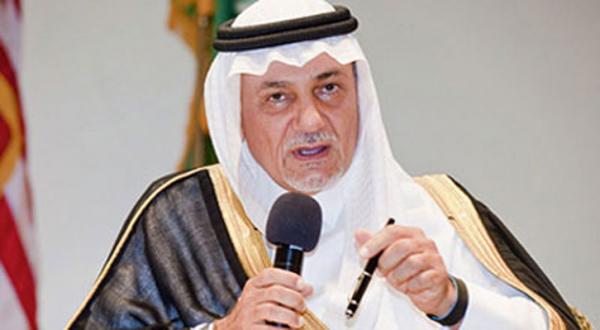Abu Dhabi-The Chairman of the King Faisal Center for Research and Islamic Studies, Prince Turki Al Faisal stressed the importance of dialogue between his country and Iran during the Beirut Institute Summit, held in Abu Dhabi on Sunday.
“We support the notion of regular discussions between Saudi Arabia and Iran. The bilateral relationship between Saudi Arabia and Iran arguably represents the single most important driver of the evolution of the Middle East geopolitically, economically and socially,” he said.
“A disciplined, energetic effort to regularize dialogue between these two powers is a critical imperative for the region and the world,” the co-chairman of the summit added.
On the fight against terrorism and extremism, the prince welcomed the recent formation of the Islamic military alliance led by Saudi Arabia, and called for more cooperation between Islamic countries in combating groups such as ISIS.
“The Islamic alliance is a pioneering movement and a definite welcome, this is something that should have been established in the past, as it brings different Islamic countries together on the basis of countering terrorism, an issue that all international countries agree on,” he said.
Resolving conflicts in Syria, Yemen, Libya and Iraq is imperative for the future of the Middle East and North Africa, Saudi prince Turki Al Faisal Al Saud added.
HRH Prince Turki confirmed that Iran is responsible for the tension in the region, indicating that all the problems in the Middle East were connected to the “Palestinian Cause”.
“Peace for Palestine will not stop terrorism but it will definitely take a load off our backs that is very much weighing on our ability to deal with these other matters,” Prince Turki said.
“As for Iran, the ball is in its court now. Saudi Arabia has expressed publicly that Iran’s interference in the affairs of Arab states is unacceptable, something that Iranians somehow seem to be proud of. And that is a point of contention that needs to be overcome if we expect the kind of engagement that will be helpful to both parties.”
“Most victims and casualties of terrorism are Muslims; therefore we have a crucial role in confronting terrorism. It is not enough to deal with the symptoms only, we must go for the root causes and eradicate the disease,” he added.
With the Middle East facing a host of challenges, a settlement to the Palestinian-Israeli conflict remains a priority on the agenda for achieving stability within the region, said Al Faisal.
“There is a very strong recommendation that the Palestinian issue should be resolved, there are no question marks about this problem, and everybody knows the solution is the two-state solution with recognized borders as called for in the Arab Peace Initiative,” he said.
“The issue of Palestine continues to represent the deepest wound weakening the region. Resolving it remains crucial as a matter of justice and as a part of our efforts to counter and prevent violence across the region,” he added.

